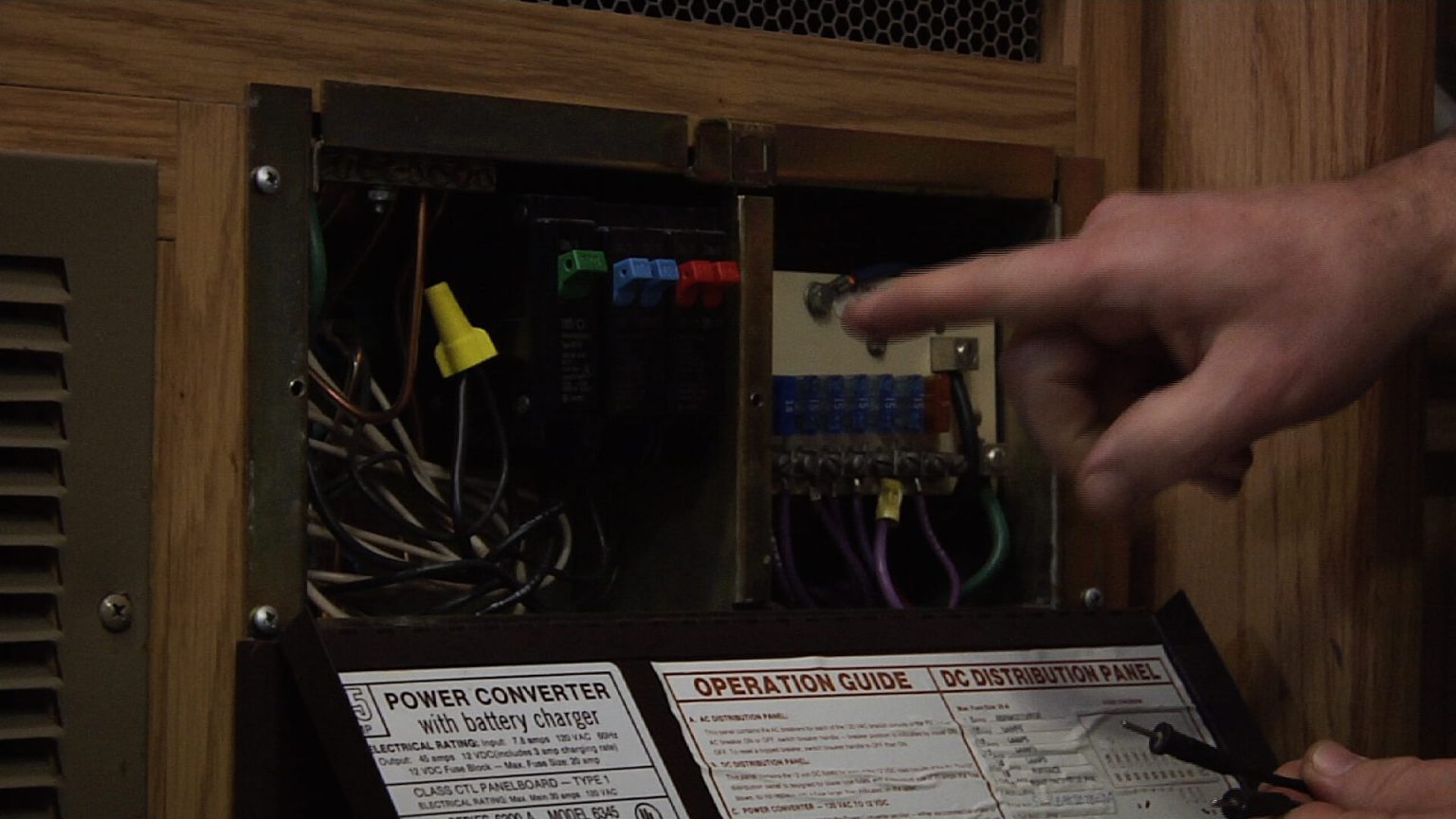Camper Electrical System Troubleshooting Guide
So, you've rolled into your campsite, ready to unwind after a long drive, only to find…nothing. No lights, no fridge humming, no power to the camper when plugged in. Frustrating, right? This scenario is all too common for camper owners, and it can quickly turn a relaxing getaway into a troubleshooting nightmare. This guide will walk you through common causes, simple fixes, and provide you with the knowledge to tackle this issue head-on.
Electrical problems are a fact of life for anyone living the RV lifestyle. From loose connections to tripped breakers, there's a whole host of reasons why your camper might not be receiving power, even when hooked up to shore power. Understanding the basics of your camper's electrical system is the first step in diagnosing and solving these problems.
Before the advent of modern RVs, camping was a much simpler affair. No fancy electrical systems, no microwaves, no power outlets. Now, our campers are miniature homes on wheels, complete with all the electrical conveniences we're used to. This complexity, however, comes with its own set of challenges, including the dreaded "no power" scenario.
The ability to power your camper when hooked up is crucial for a comfortable camping experience. It allows you to run essential appliances, charge your devices, and enjoy the comforts of home while on the road. When this power fails, it not only disrupts your plans but can also potentially spoil food stored in your refrigerator or prevent the use of essential medical equipment.
One of the most frequent issues campers face is the lack of electricity when connected to shore power. This can stem from various problems, ranging from a tripped breaker in the campground pedestal to a faulty connection within your camper. The good news is that many of these issues are relatively easy to diagnose and fix with a little know-how.
One frequent cause is a tripped breaker at the power pedestal. Always check the breaker first before moving on to more complex troubleshooting within your camper.
Another common culprit is a faulty shore power cord. Inspect the cord for any visible damage, fraying, or loose connections.
Inside your RV, check your camper's main breaker panel. A tripped breaker could be the reason for the power outage. Also, inspect the GFCI outlets for tripping.
If you've checked all the obvious culprits and still have no power, a faulty transfer switch could be the issue. This switch controls the flow of electricity between shore power and your generator.
Benefits of understanding your camper's electrical system:
1. Self-sufficiency: You won't have to rely on expensive RV technicians for simple electrical fixes.
2. Cost savings: Diagnosing and fixing problems yourself can save you significant money on repair bills.
3. Peace of mind: Knowing how to handle electrical issues provides peace of mind, knowing you can troubleshoot problems quickly and efficiently.
Advantages and Disadvantages of Being Prepared for Power Outages
| Advantages | Disadvantages |
|---|---|
| Self-reliance and ability to troubleshoot | Initial time investment in learning |
| Cost savings on repairs | Potential for misdiagnosis if not careful |
Best Practices for Preventing Electrical Problems:
1. Regularly inspect your shore power cord and connections.
2. Avoid overloading circuits by running too many appliances at once.
3. Understand the amperage requirements of your appliances and ensure your electrical system can handle them.
4. Use a surge protector to protect your camper's electrical system from voltage spikes.
5. Have a multimeter on hand to test voltage and continuity.
Frequently Asked Questions:
1. What should I do if the power goes out in my camper? Check the circuit breakers.
2. How do I reset a tripped breaker? Flip the breaker switch fully off and then back on.
3. What causes a breaker to trip? Overloading the circuit.
4. What is a GFCI outlet? A Ground Fault Circuit Interrupter designed to protect against electrical shocks.
5. How do I test my shore power cord? With a multimeter.
6. Why is my camper's fridge not working? Possible power issue, check the outlet.
7. How do I conserve power in my camper? Limit the use of high-energy appliances.
8. Can I run my air conditioner on a generator? Depends on the generator's wattage.
Tips and Tricks:
Carry spare fuses and a multimeter for quick troubleshooting. Label your breakers clearly to avoid confusion.
In conclusion, understanding your camper's electrical system is paramount to a smooth and enjoyable camping experience. While the prospect of troubleshooting electrical issues can seem daunting, many problems are relatively simple to fix with a little knowledge and preparation. By familiarizing yourself with the common causes of power outages, practicing preventative maintenance, and understanding basic troubleshooting steps, you can confidently tackle the "no power to camper when plugged in" scenario and ensure your camping adventures remain uninterrupted. Investing a little time in learning the basics will save you headaches, money, and allow you to fully enjoy the freedom and flexibility of the RV lifestyle. Don’t let electrical gremlins ruin your trip – be prepared and enjoy the open road!
Conquering anime worlds the ultimate unit tier list guide
Banish water spots sparkling stainless steel secrets
Going gray gracefully embracing the silver strand trend














